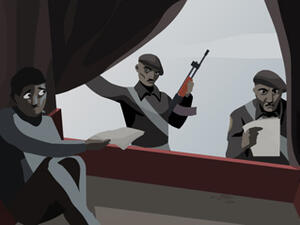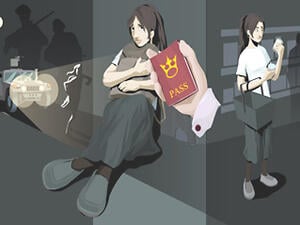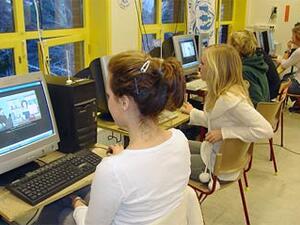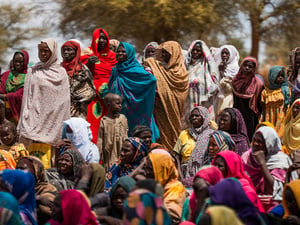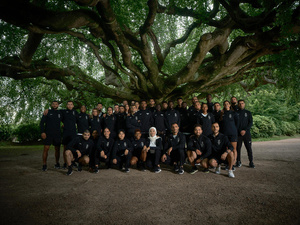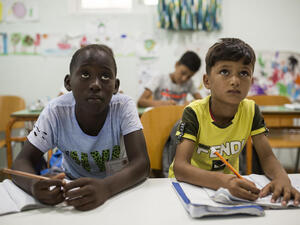UNHCR picks up prestigious Austrian award for interactive game
UNHCR picks up prestigious Austrian award for interactive game
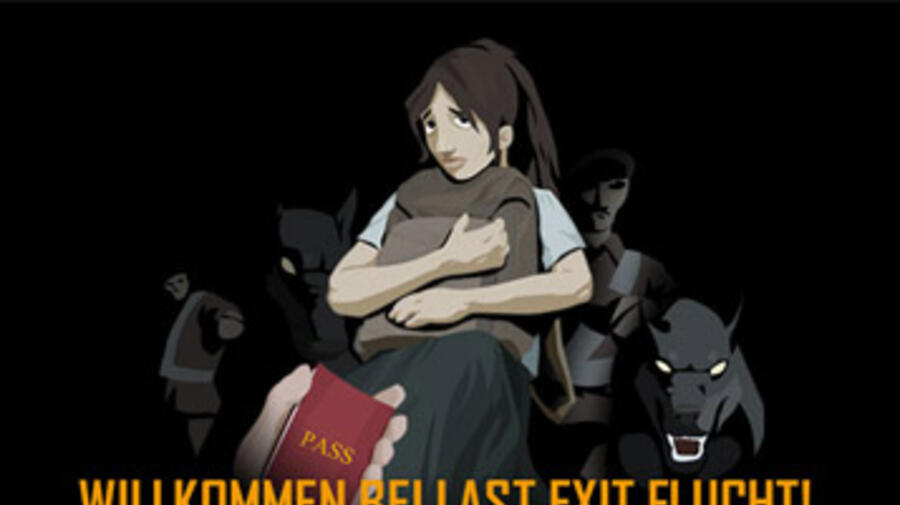
Part of the opening screen of the award-winning online game.
VIENNA, Austria, September 22 (UNHCR) - The UN refugee agency has won a prestigious Austrian award for an interactive computer game aimed at promoting positive attitudes towards refugees.
In a gala ceremony last Tuesday in Vienna's Mozart Hall, the acclaimed game - which can be found at www.LastExitFlucht.org and played free of charge - was awarded the Austrian Multimedia and E-Business State Prize in the category for "Knowledge and Learning."
The internet-based game, which takes players through the trauma of fleeing persecution and seeking asylum, beat off stiff competition from a CD-Rom about the life of the famous Austrian composer Wolfgang Amadeus Mozart
UNHCR public information officer, Roland Schönbauer, accepted the award before some 400 selected guests, including the speaker of the Austrian parliament, Andreas Khol, and representatives of new media and information technology companies. The awards were chosen by a panel of 14 experts from universities, the corporate sector and the media.
"We are working with real refugees every day all over the world - so we know their reality," Schönbauer told the audience after a presenter asked him how the game had been conceived. Sequences from the game were shown on a huge screen before the winner was announced.
The jury praised LastExitFlucht (LastExitFlight) as "a game which excellently creates empathy for the situation of refugees." While it is aimed at teenagers, the panel said the game also forced adults to reflect on political attitudes towards refugees. They praised the game's realism and design.
LastExitFlucht was launched in March for the youth market in German-speaking countries. It is a reworked version of a Swedish-language game, Mot Alla Odds, which was designed by UNHCR in Stockholm and launched last December. There is also a Norwegian version and UNHCR hopes to translate it into other languages, including Danish and English.
The game takes players through the experience that millions of refugees have faced, including fleeing their homes and struggling to cope with a new culture and language in a foreign land.
Among the different scenarios, players must overcome obstacles in leaving their homes in search of safety and assistance. In exile, they must cope with the difficulties of starting a new school, not knowing the language and having to make new friends. They also experience what refugees go through when facing discrimination on the streets, applying for a job and generally starting a new life.
In addition to the virtual part of LastExitFlucht, the game provides a factual library including interviews with real refugees. It is also a lively educational tool, which charts the history of asylum in Europe and explains the difficulties refugees in Europe currently face in upholding their rights. There is specific information about asylum procedures and a teachers' guide complete with a range of exercises.

The Austrian trophy won by UNHCR's LastExitFlucht game.
With some 120,000 hits since its launch, the site has received enthusiastic support from young people, teachers and the media in Germany, Switzerland and Austria. Acclaimed children's author, Thomas Brezina, said he was moved by the portraits of refugee children. "Altogether it's a package that is well done," he said, adding: "I cannot but recommend it."
Schönbauer later acknowledged the support of corporate partners - such as Norway's Statoil - in developing and promoting the game. Statoil sponsored the Norwegian version and the original Swedish-language Mot Alla Odds.
By Roland Schönbauer in Vienna, Austria

